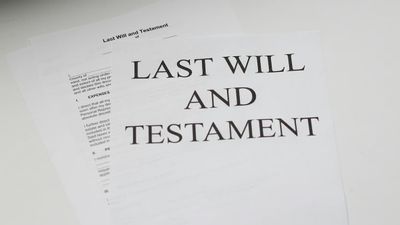Understanding Conservatorship Bonds: A Comprehensive Guide
Navigating legal and financial matters can feel overwhelming, especially when it comes to protecting a loved one who can no longer manage their own affairs. A Conservatorship bond is designed to safeguard vulnerable individuals by ensuring that the person managing their finances does so responsibly and ethically. Let’s explore this often-overlooked but critical aspect of Conservatorship and understand its significance.
Understanding Conservatorship Bonds
A Conservatorship bond is a type of surety bond involving three parties: the principal (Conservator), the obligee (the Court), and the surety (the bond company). The Court typically mandates this bond when appointing a Conservator.
What is a Conservatorship Bond?
A Conservatorship bond may be required if you’re appointed as a Conservator for someone who cannot manage their own affairs. This process is common in cases involving elderly individuals, those with disabilities, or individuals who are mentally incapacitated.
These bonds guarantee the Conservator will act honestly and competently when managing the conservatee’s finances. Should the Conservator mismanage funds, engage in fraudulent activities, or fail in their duties as outlined by the Court, a claim can be filed against the bond.
Who Needs a Conservatorship Bond?
If you're appointed as a conservator for someone who is elderly, disabled, or incapacitated, you may need a Conservatorship bond. This bond ensures that you manage the conservatee’s assets responsibly and according to the Court's instructions.
The specific requirements for a Conservatorship bond, sometimes called guardianship bonds, often depend on state laws. In some instances, the bond amount might be equal to the conservatee's assets, plus one year of the conservatee's income. This can vary, though, depending on factors like the value of assets and the perceived risk involved.
Getting a Conservatorship bond doesn't have to be complicated. Surety bond companies specialize in navigating these requirements and can provide you with a bond quote. They can also answer common questions about probate bonds, such as "What is a Conservator surety bond?" and "How much does a Conservator bond cost?"

How Does a Conservatorship Bond Protect the Conservatee?
The benefit of the Conservatorship bond lies in its protection. It serves as a safety net, offering a way to recover any losses suffered due to the Conservator’s negligence or dishonesty. The Court, or someone acting on behalf of the conservatee, can file a claim with the bond company seeking compensation.
If the claim is valid, the surety company steps in, covering the losses up to the bond amount. This ensures the conservatee’s well-being isn’t compromised by potential misconduct and that the Conservator upholds their fiduciary duty.
Costs and Requirements for Conservatorship Bonds
Obtaining a Conservatorship bond does come with specific costs and requires a bit of paperwork. This is because it is a serious responsibility with legal and financial implications. Partnering with reputable providers ensures compliance and protects everyone involved.
How Much Do Conservatorship Bonds Cost?
The cost of a Conservatorship bond can vary based on factors such as the bond amount, your credit history, and the surety company you choose. Typically, the bond premium is a small percentage of the bond amount, ranging from 0.5% to 1%.
You can request a free bond quote from a surety bond company to determine the cost of your bond. Be prepared to provide information such as your location, the bond amount required by the Court, and your personal credit history. Some surety bond companies may also consider the total assets of the Conservatorship when determining the bond cost.
Navigating the Bond Application Process
To start, gather all necessary documents, such as the Court order appointing you as the Conservator, your financial statements, and details about the case. You’ll then work with the surety company, provide the information, and complete their bond application.
Because bond applications and their approval rely heavily on financial history and perceived risk, this step requires attention to detail. Providing inaccurate or incomplete information will likely cause delays and could lead to your application being rejected. Being organized and upfront from the get-go makes for a much smoother process.
Why a Surety Bond is Vital for Conservatorships
A Conservatorship bond helps weed out those who might try to take advantage of a conservatee. By attaching financial consequences to misbehavior, surety bonds help keep everyone honest. Additionally, this offers a means of recourse for the vulnerable individuals under their care.
A Conservatorship bond reassures the Court and those involved that you take your responsibilities as a Conservator seriously. It shows you're committed to acting in the best interests of the conservatee and managing their financial affairs ethically and responsibly.
A Conservatorship bond is much more than a formality; it’s an integral piece that adds another layer of security and accountability to the Conservatorship. As with all legal matters, thoroughness is key, so don’t hesitate to consult with experienced professionals to determine the specifics of your situation. They can answer your questions, explain the process clearly, and make sure everything's handled by the book.
FAQs About Conservatorship Bonds
Do you need a bond for Conservatorship in California?
Yes, in many states, including California, a bond is often required when a Conservator is appointed to manage the financial affairs of someone who cannot do so themselves.
What is a Conservatorship relationship?
A Conservatorship is a legal relationship where a Court appoints someone to care for someone else who can't care for themselves. It involves the Conservator (caretaker) and the conservatee (person needing care), and the Court oversees it. This ensures the conservatee's financial affairs are managed properly and that their personal needs are met.
Why is Conservatorship a thing?
Conservatorships exist to protect individuals unable to manage their lives due to age, disability, or mental incapacitation. Imagine someone struggling to make safe decisions or manage money; Conservatorship provides a legal safety net, ensuring their well-being and protecting them from potential harm or exploitation. The Court appoints a responsible individual or organization, the Conservator, to manage the conservatee's financial affairs and personal matters.
What is the difference between a bond and an indemnity bond?
Both bonds protect against financial loss, but they serve different purposes. A Conservatorship bond ensures that a Conservator fulfills their legal duties, while an indemnity bond typically involves two parties and protects one party from losses caused by the actions of the other.
Conclusion
Obtaining a Conservatorship bond is more than just a legal formality—it protects vulnerable individuals and ensures their assets are managed properly. Advocate Fiduciary Services is here to help guide you through the process of securing a Conservatorship bond.
If you’re navigating the process of obtaining a conservatorship bond or have questions about your responsibilities as a Conservator, Advocate Fiduciary Services is here to help. Our experienced team can guide you through each step, ensuring the protection and well-being of your loved ones. Contact us today to learn more.




